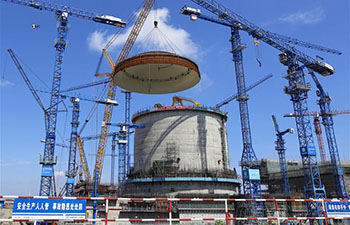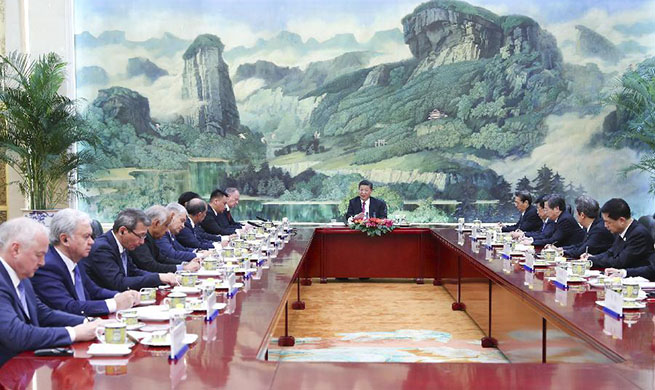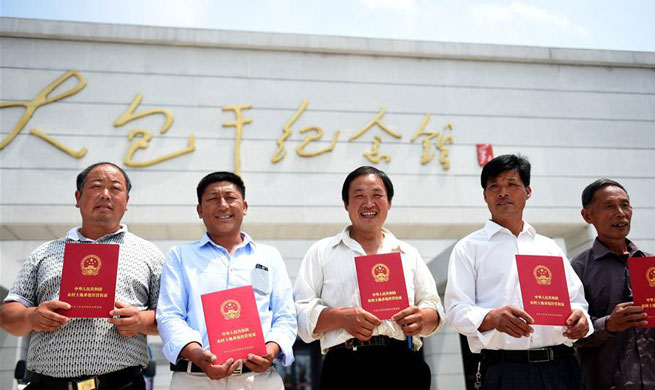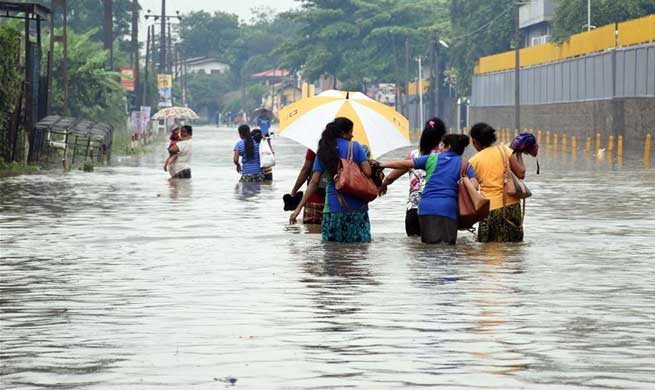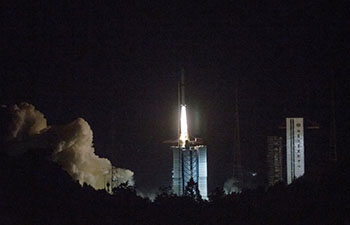by Xinhua writer Shi Xiaomeng
BEIJING, May 24 (Xinhua) -- German Chancellor Angela Merkel is paying an official visit to China on Thursday and Friday, marking her 11th trip to the Asian country amid a raft of global uncertainties.
Despite the challenges of protectionism, raging anti-globalization sentiment and unilateralism, China and Germany have chosen to enhance cooperation across a number of fields. Looking to the future, the two countries are bound for closer ties.
According to the Federal Statistical Office of Germany, goods worth 186.6 billion euros (218.74 billion U.S. dollars) were traded between Germany and China in 2017. And China was Germany's most important trading partner in 2017 for the second consecutive year.
During her trip, Merkel will visit Shenzhen, an economic hub of strategic significance in China's southern Guangdong Province and an icon of China's development miracle during its reform and opening up over the past 40 years.
The city is home to the headquarters of a number of leading hi-tech and innovative Chinese home-grown enterprises, including Tencent and ZTE. It also has a favorable environment that is attractive to foreign investors, including those from Germany.
Innovation, the Internet, smart manufacturing, new energy, and green development are fields that can broaden the scope of cooperation and lead to opportunities for economic growth.
Progress is already in the making. Earlier this year, China and Germany set up 11 innovation cooperation platforms, covering fields such as electric vehicles, bioscience, clean water, intelligent manufacturing and clean energy.
Also, opportunities for closer cooperation such as the China-proposed Belt and Road Initiative (BRI) are fostering more investment possibilities.
According to a Business Confidence Survey conducted in 2017 by the German Chamber of Commerce, more than one third of the German companies operating in China expect a positive impact on their future business as a result of the BRI. And 30 percent of German companies are active or considering involvement in BRI projects. Moreover, China's grand infrastructure and trade project stands to bolster China-Europe ties overall.
Also, while addressing this year's annual gathering of the Boao Forum last month, Chinese President Xi Jinping proposed a fresh set of ambitious moves to open the country's door even wider to the world, including slashing tariffs on imported vehicles and offering greater access to Chinese markets for foreign firms.
These are not lip-service promises. China announced on Tuesday that it will cut import tariffs on some vehicles to 15 percent, down from as much as 25 percent; the move is no doubt good news for German automakers.
While both economic powers share a willingness to boost their already strong trade and investment links, they have repeatedly voiced their readiness to defend the rules-based global free-trade system and further promote openness in the global economy. Their corresponding stance has special meaning in today's world where globalization is under threat.
The topic of multilateralism is likely to be raised during Merkel's talks with Chinese leaders.
"We want to strengthen multilateralism. And that will play a role in our discussion," Merkel said in a podcast published Saturday.
China has been a strong supporter for the world's multilateral system, and so has Germany, be it the Paris Agreement negotiations or the Iranian nuclear deal talks.
Almost one year ago when President Xi visited Germany, he called the development of China-Germany ties over the decades a "success story" that has delivered real benefits to the two peoples.
As the leaders of both countries meet again, the visit is expected to help write a new chapter in the China-Germany success story.







